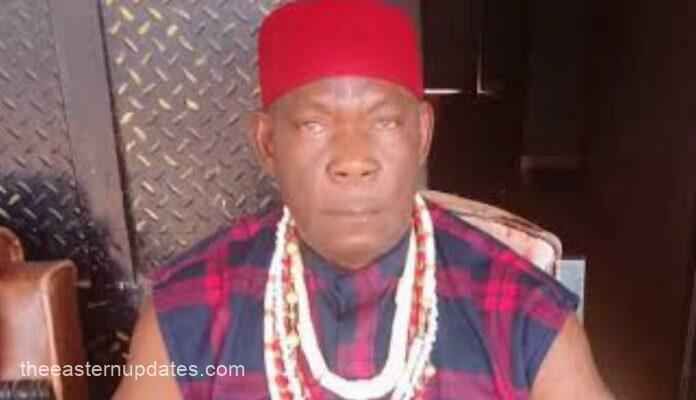|
Listen to article
|
The Eze Ndigbo of Ajao Estate, Lagos, Frederick Nwajagu, who is currently being prosecuted for with terrorism has claimed that he did not know there was a law prohibiting a person from mentioning the Indigenous People of Biafra (IPOB) in Nigeria.
Nwajagu made this assertion while giving evidence before a Lagos High Court at Tafawa Balewa Square yesterday.
The Eastern Updates reports that Nwajagu is currently standing trial on a nine-count bordering on an attempt to commit acts of terrorism, financing terrorism, participating in terrorism and meeting to support a proscribed entity.
On the resumed hearing yesterday, the defendant was led in evidence by his counsel, Mr Emefo Etudo.
The defendant told the court that he had never referred to himself as a king,but a leader to the Igbo-speaking people in Ajao Estate.
He said the video shown to the court where he was talking was not the original video but an edited one.
Read Also: Real Reason Ndigbo Won’t Join Hardship Protest – IPOB
Nwajagu noted that what he said in his house was an empty threat made to calm the Igbo down.
“After the 2023 elections, some people came to my house. I gave them drinks and I made the statement believing that there is freedom of speech and association in Nigeria.I have no connection with IPOB,” he said.
The defendant was cross examined by the Director of Public Prosecutions (DPP), Dr Babajide Martins.
The defendant told the court that when he was interrogated at the Department of Security Service (DSS) office, he informed the DSS that he had no relationship with IPOB.
Nwajagu repeated that he was not the person that recorded the video.
“I made the statement that went viral because of the Igbo people whose shops were looted and burnt including what MC Oluomo said against the Igbos in Lagos.
“I made a second video while at Panti Police station denouncing the first video.
“I regret making the first speech because I didn’t know there is a law prohibiting people from mentioning IPOB.”
After the cross examination, his counsel urged the court to release the defendant on bail.
He said the prosecution had closed its case and the nature of the prosecution’s evidence should not counter the bail application.
The prosecution, however, urged the court to reject the bail application.
























